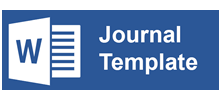The Role of SWOT Analysis in Enhancing Business Growth and Long-Term Management Sustainability
DOI:
https://doi.org/10.31181/msa21202528Keywords:
SWOT Analysis, Business Growth, Management Sustainability, Corporate Sustainability, Organizational DevelopmentAbstract
This article talks about the strategic importance of SWOT analysis as an important tool to develop business growth and to promote sustainability in the long term. By examining practically every aspect of the four dimensions (strength, weakness, opportunity, and threat), SWOT provides organizations with a relevant way to evaluate their internal capabilities to adapt to the external world. The article highlights the SWOT framework, implications for driving business growth, and implications for supporting sustainability efforts. Within each of the components, the article outlines how SWOT provides firms the opportunity to obtain competitive advantages as well as to link corporate objectives to global sustainable development goals in general. Finally, the article concludes that SWOT analysis remains timely and relevant in the ever-changing business environment today.
Downloads
References
Chermack, T. J., & Kasshanna, B. K. (2007). The use and misuse of SWOT analysis and implications for HRD professionals. Human Resource Development International, 10(4), 383-399. https://doi.org/10.1080/13678860701718760. DOI: https://doi.org/10.1080/13678860701718760
Helms, M. M., & Nixon, J. (2010). Exploring SWOT analysis–where are we now? A review of academic research from the last decade. Journal of Strategy and Management, 3(3), 215-251. https://doi.org/10.1108/17554251011064837. DOI: https://doi.org/10.1108/17554251011064837
Penchev, D. (2021). SWOT analysis as a research method in pedagogy. Педагогика, 93(5), 669-678.
Jayadi, U., & Ferine, K. F. (2025). Strategic Management in the Dynamic Business Environment: A Comprehensive Analysis. In: Proceedings of the International Conference on Multidisciplinary Science (INTISARI) (Vol. 1, No. 3, pp. 1-7).
Das, K. P., Sharma, D., & Satapathy, B. K. (2022). Electrospun fibrous constructs towards clean and sustainable agricultural prospects: SWOT analysis and TOWS based strategy assessment. Journal of Cleaner Production, 368, 133137. https://doi.org/10.1016/j.jclepro.2022.133137. DOI: https://doi.org/10.1016/j.jclepro.2022.133137
Qudrat-Ullah, H. (2025). Structured Decision-Making Processes. In: Mastering Decision-Making in Business and Personal Life: An Interdisciplinary Perspective on Making Better Choices (pp. 147-180). Cham: Springer Nature Switzerland. https://doi.org/10.1007/978-3-031-81068-8_6. DOI: https://doi.org/10.1007/978-3-031-81068-8_6
Puyt, R. W., Lie, F. B., & Wilderom, C. P. (2023). The origins of SWOT analysis. Long Range Planning, 56(3), 102304. https://doi.org/10.1016/j.lrp.2023.102304. DOI: https://doi.org/10.1016/j.lrp.2023.102304
Denchev, S., Yordanova, S., & Stoyanova, D. (2022). SWOT Analysis of the Educational Sector before and after the Beginning of Total Globalization. In: INTED2022 Proceedings (pp. 3433-3437). IATED. https://doi.org/10.21125/inted.2022.0963. DOI: https://doi.org/10.21125/inted.2022.0963
Puyt, R. W., Lie, F. B., & Madsen, D. Ø. (2025). From SOFT approach to SWOT analysis, a historical reconstruction. Journal of Management History, 31(2), 333-373. https://doi.org/10.1108/JMH-05-2023-0047. DOI: https://doi.org/10.1108/JMH-05-2023-0047
Palazzo, M., & Micozzi, A. (2024). The SWOT analysis: An evolving decision-making model. In: Rethinking Decision-Making Strategies and Tools: Emerging Research and Opportunities (pp. 53-70). Emerald Publishing Limited. https://doi.org/10.1108/978-1-83797-204-320241004. DOI: https://doi.org/10.1108/978-1-83797-204-320241004
Valentin, E. K. (2005). Away with SWOT analysis: Use defensive/offensive evaluation instead. The Journal of Applied Business Research, 21(2), 91-105. DOI: https://doi.org/10.19030/jabr.v21i2.1492
Novicevic, M. M., Harvey, M., Autry, C. W., & Bond III, E. U. (2004). Dual‐perspective SWOT: a synthesis of marketing intelligence and planning. Marketing Intelligence & Planning, 22(1), 84-94. https://doi.org/10.1108/02634500410516931. DOI: https://doi.org/10.1108/02634500410516931
Lock, A. R., & Hughes, D. R. (1989). “Soft” Information Systems for Marketing Decision Support. Marketing Intelligence & Planning, 7(11/12), 25-29. https://doi.org/10.1108/EUM0000000001066. DOI: https://doi.org/10.1108/EUM0000000001066
Vardopoulos, I., Tsilika, E., Sarantakou, E., Zorpas, A. A., Salvati, L., & Tsartas, P. (2021). An integrated SWOT-PESTLE-AHP model assessing sustainability in adaptive reuse projects. Applied Sciences, 11(15), 7134. https://doi.org/10.3390/app11157134. DOI: https://doi.org/10.3390/app11157134
Кагазбаев, Ж. (2023). SWOT analysis as a means of critical thinking skills development of IT students in professional English class. Bulletin of the Karaganda University Pedagogy series, 112(4), 168-178. https://doi.org/10.31489/2023ped4/168-178. DOI: https://doi.org/10.31489/2023ped4/168-178
Benzaghta, M. A., Elwalda, A., Mousa, M. M., Erkan, I., & Rahman, M. (2021). SWOT analysis applications: An integrative literature review. Journal of Global Business Insights, 6(1), 54-72. https://doi.org/10.5038/2640-6489.6.1.1148. DOI: https://doi.org/10.5038/2640-6489.6.1.1148
Drastichová, M. (2024). SWOT analysis of the sustainable development concept. Problemy Ekorozwoju, 19(1), 6-30. https://doi.org/10.35784/preko.5431. DOI: https://doi.org/10.35784/preko.5431
Sakas, D., Vlachos, D., & Nasiopoulos, D. (2014). Modelling strategic management for the development of competitive advantage, based on technology. Journal of Systems and Information Technology, 16(3), 187-209. https://doi.org/10.1108/JSIT-01-2014-0005. DOI: https://doi.org/10.1108/JSIT-01-2014-0005
Ghazinoory, S., Abdi, M., & Azadegan-Mehr, M. (2011). SWOT methodology: a state-of-the-art review for the past, a framework for the future. Journal of Business Economics and Management, 12(1), 24-48. https://doi.org/10.3846/16111699.2011.555358. DOI: https://doi.org/10.3846/16111699.2011.555358
Vlados, C. (2019). On a correlative and evolutionary SWOT analysis. Journal of Strategy and Management, 12(3), 347-363. https://doi.org/10.1108/JSMA-02-2019-0026. DOI: https://doi.org/10.1108/JSMA-02-2019-0026
Srivastava, M., Franklin, A., & Martinette, L. (2013). Building a sustainable competitive advantage. Journal of Technology Management & Innovation, 8(2), 47-60. http://dx.doi.org/10.4067/S0718-27242013000200004. DOI: https://doi.org/10.4067/S0718-27242013000200004
South, S. E. (1981). Competitive advantage: the cornerstone of strategic thinking. Journal of Business Strategy, 1(4), 15-25. https://doi.org/10.1108/eb038908. DOI: https://doi.org/10.1108/eb038908
Lozano, R. (2015). A holistic perspective on corporate sustainability drivers. Corporate Social Responsibility and Environmental Management, 22(1), 32-44. https://doi.org/10.1002/csr.1325. DOI: https://doi.org/10.1002/csr.1325
Fonseca, L., Carvalho, F., & Santos, G. (2023). Strategic CSR: Framework for sustainability through management systems standards—Implementing and disclosing sustainable development goals and results. Sustainability, 15(15), 11904. https://doi.org/10.3390/su151511904. DOI: https://doi.org/10.3390/su151511904
Farag, M. I. H. (2025). Critical Success Factors (CSFs) Affecting the Sustainable Development Goals (SDGs). Doctoral dissertation, Helwan University, Egypt.
Tuhin, M. N. (2025). Management Science Burdens in Bangladesh: A Case of Food-Services Organizations. Management Science Advances, 2(1), 144-157. https://doi.org/10.31181/msa21202516. DOI: https://doi.org/10.31181/msa21202516
Kumar, A., & Sunita. (2025). E-Waste and the Telecommunication Industry: A 15-Year Bibliometric Mapping of Research Progress. Applied Research Advances, 1(1), 28-49. https://doi.org/10.65069/ara1120251. DOI: https://doi.org/10.65069/ara1120251
Veselovská, L. (2025). Reflection on COVID-19 Pandemic Consumer Behaviour: Implications for the Future. Spectrum of Engineering and Management Sciences, 3(1), 187-195. https://doi.org/10.31181/sems31202551v. DOI: https://doi.org/10.31181/sems31202551v
Pereira, L., Pinto, M., da Costa, R. L., Dias, Á., & Gonçalves, R. (2021). The new SWOT for a sustainable world. Journal of Open Innovation: Technology, Market, and Complexity, 7(1), 18. https://doi.org/10.3390/joitmc7010018. DOI: https://doi.org/10.3390/joitmc7010018
Downloads
Published
Issue
Section
License
Copyright (c) 2025 (Author)

This work is licensed under a Creative Commons Attribution 4.0 International License.













